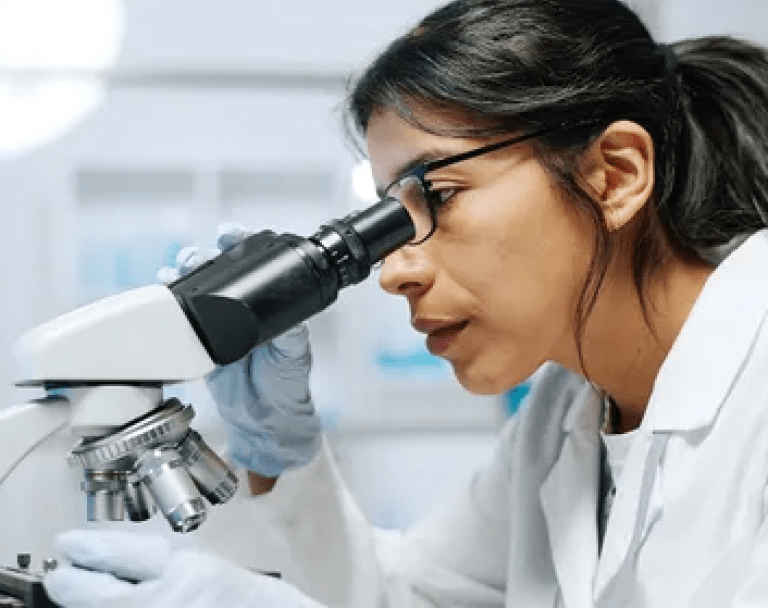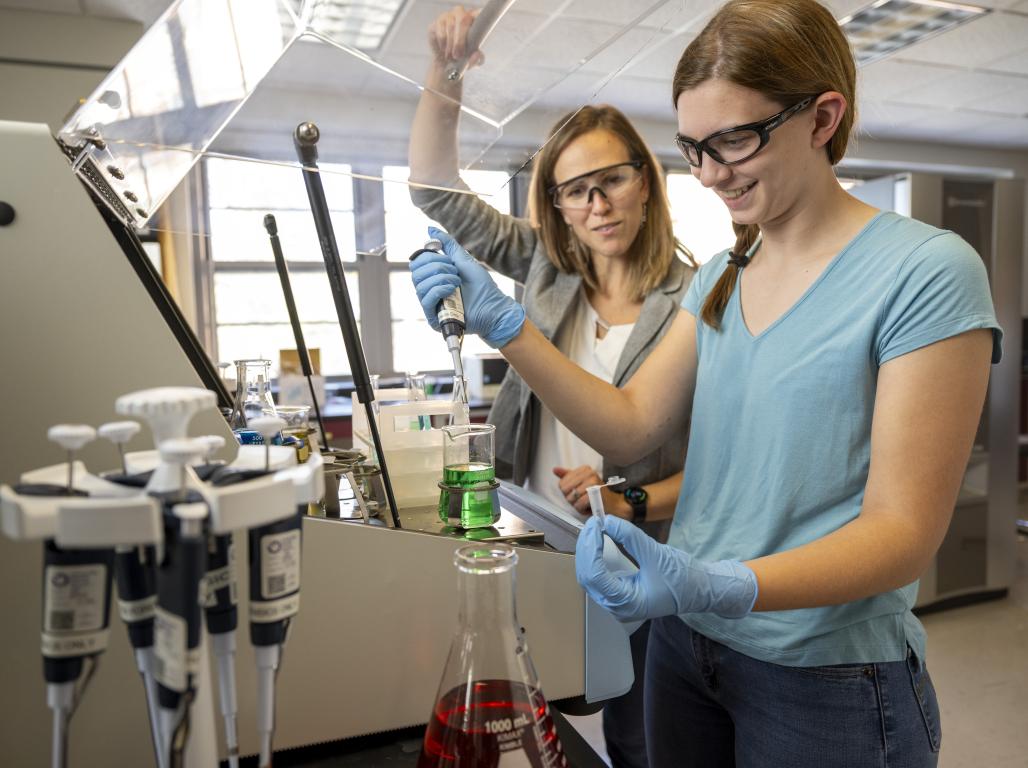
If you’re a fan of true crime or detective shows, you’ve probably seen a character playing a forensic chemist in the background of a scene — but what is this career path like in the real world?
At the core of their work, forensic chemists analyze evidence found at crime scenes and look for information to help solve the case. These professionals rigorously analyze potential evidence, applying knowledge from chemistry, biology, materials science, and genetics. Their work plays a key role in supporting the justice system and ensures that crime scenes are reviewed with appropriate scientific expertise. For forensic chemists working in the field, there are abundant opportunities and areas of specialization.“[A forensic chemistry career] is so varied in what we can do,” explains Dr. Kerry Opel, Assistant Professor of Forensic Chemistry at York College of Pennsylvania. “There’s no one single job as a forensic chemist.”.
Where Do Forensic Chemists Work?
Professionals in this career have a variety of options. Career paths may include:
- Forensic science technician
- Crime laboratory chemist
- Forensic researcher
- Wildlife forensic scientist
- Toxicologist.
- and more!
Forensic chemists may be “looking at analysis of drugs. They may be doing toxicology, which is the analysis of anything in body fluids. They may be doing analysis of fire debris from potential arson, explosives, or a variety of evidence,” says Dr. Opel.
Around 90% of forensic chemists work in federal, state, or local police departments; medical examiner offices; or branches of the FBI. For many of these roles in law enforcement and government agencies, forensic chemists may be required to appear in court.
“You're preparing reports. You are preparing for testimony,” explains Dr. Opel. “If you are a drug analyst, you are more likely to perhaps have to testify in court, because that's the type of evidence that gets more questions.”
For those who wish to pursue careers in forensic chemistry that do not require interaction with the legal system, there are other options. Some forensic chemists work in other industries, using basic chemicals, specialty chemicals, and consumer chemicals to create new and useful products. “If you're using any type of instrument to do drug analysis, fire debris analysis, explosive analysis, or trace analysis, you would be doing quality control checks,” says Dr. Opel. These scientists are often responsible for validating the effectiveness of products and making sure equipment works as it should.
Research is another path for trained forensic chemists, especially for those pursuing careers in non-profit organizations. “Again, there's a wide variety of types of jobs that forensic chemists can do,” says Dr. Opel. “You do have forensic chemists that are more heavily into the research than others, and then you have some that are strictly doing lab work to analyze evidence”.
Pursue your future career with a Forensic Chemistry bachelor’s degree from York College.
Forensic Chemist Salary and Benefits
While there are plenty of career options for forensic chemists, the day-to-day work for most professionals in this field is typically rewarding. Jobs in forensic chemistry are often directly tied to meaningful societal work like crime-solving and advancing research..
According to the Bureau for Labor Statistics (BLS), forensic technicians who work for local government entities earn a mean wage of $71,030, while those working in architectural or engineering-related services earn a mean of $67,320. Forensic science technicians working in a hospital environment earn $83,350 on average, and forensic scientists in the federal government can make six-figure salaries.
How to Become a Forensic Chemist
“Most forensic jobs require that you have a four-year degree in a hard science, that being chemistry, forensic chemistry, biology, or physics,” says Dr. Opel. “You are a chemist first and then you are a forensic person, which is how our degree [at York College of Pennsylvania] is set up.” To land a forensic chemistry job, most employers are looking for candidates with at least 30 credit hours of college-level chemistry coursework.
Forensic chemists also need to demonstrate valuable “soft skills” like problem-solving, critical thinking, and communication.
Since detailed reporting is an essential aspect of most lab work, they must be skillful at technical writing. While scientific expertise is fundamental, there are other important parts of the job, explains Dr. Opel., “Forensic chemists are primarily looking at chemical analysis of the evidence. Then you have the forensic aspect, which is understanding the handling of the evidence, the packaging, the chain of custody, and the law that goes along with it.” As such, forensic chemists also benefit from public speaking skills, as they may be required to show up in a court of law to speak in front of a judge and jury.
Learn more about Forensic Chemistry at York College of Pennsylvania.




